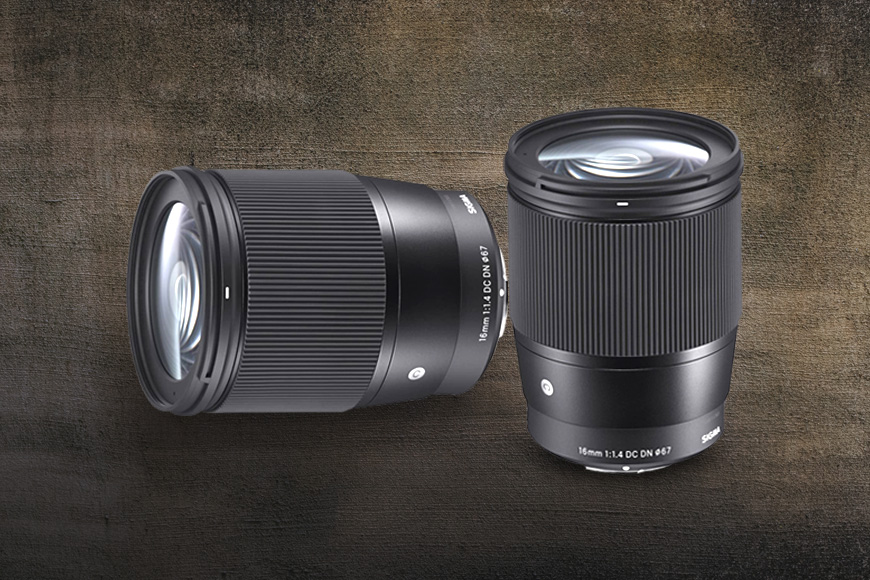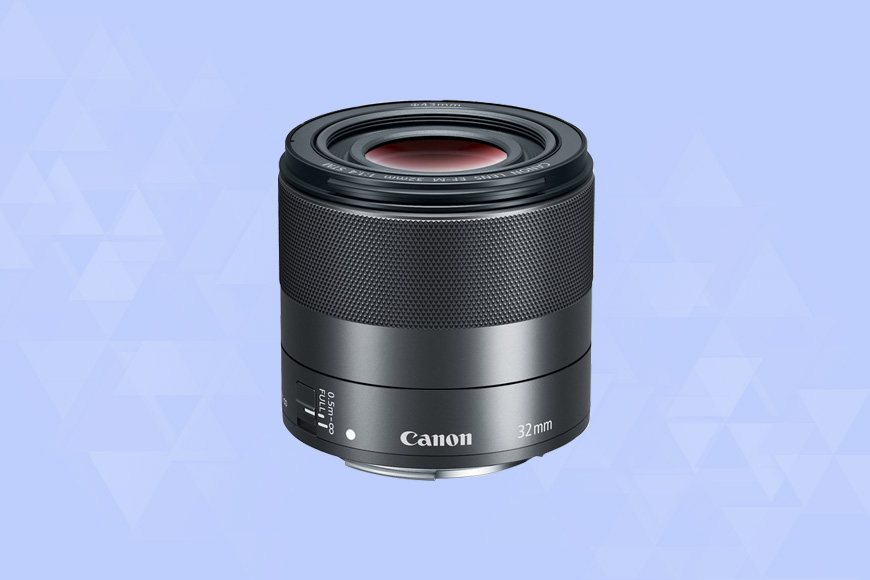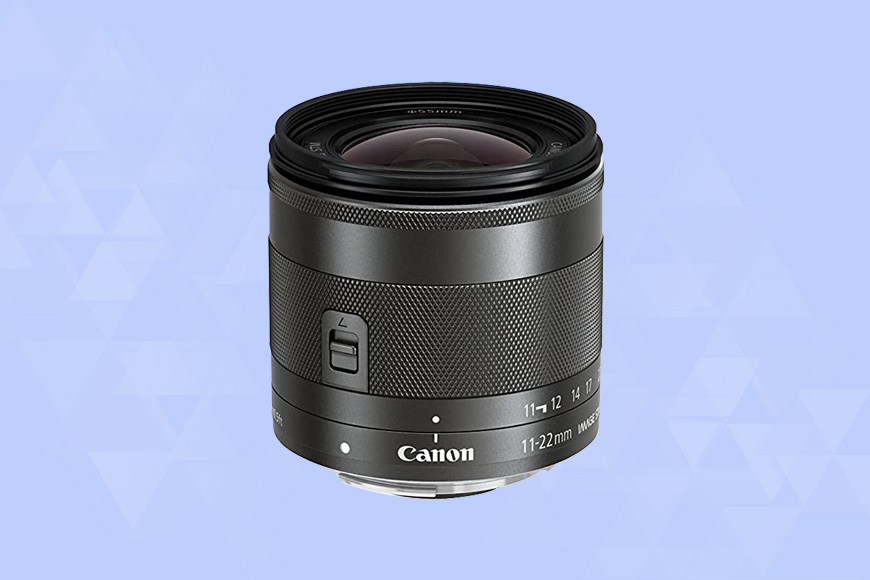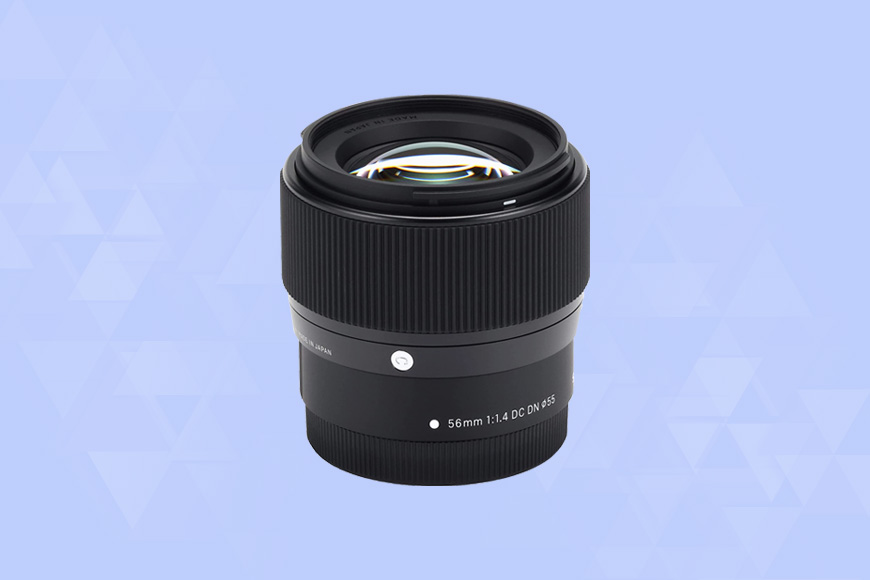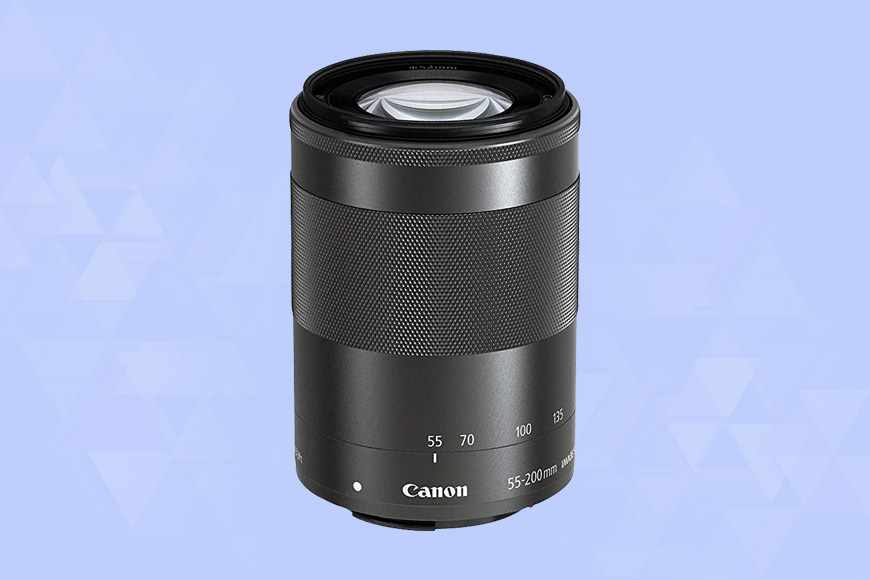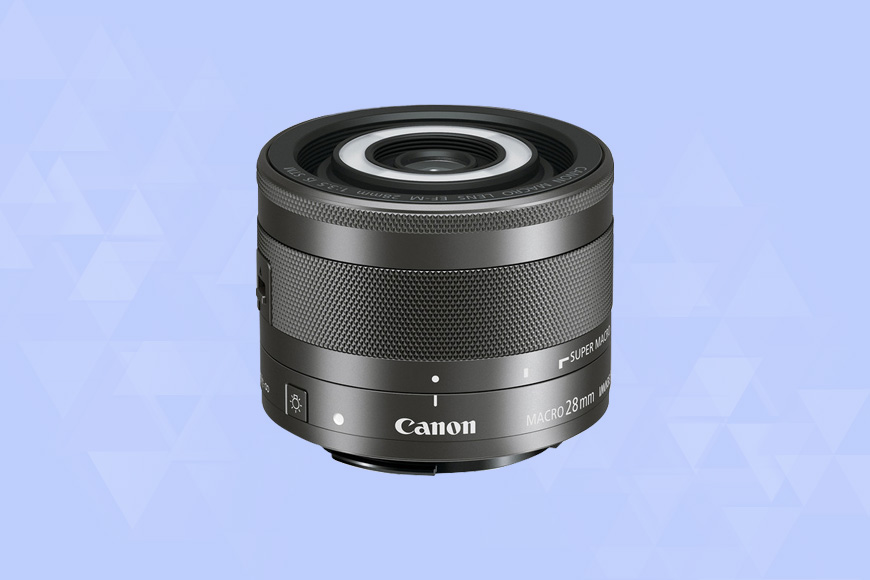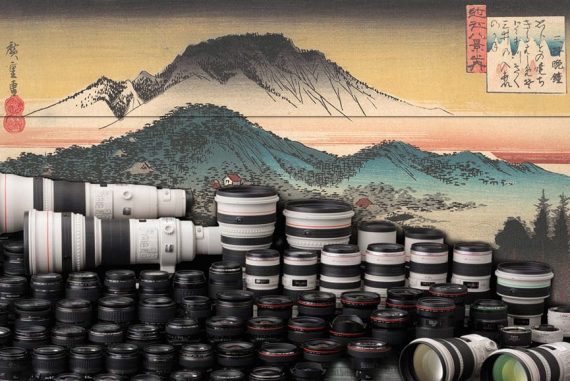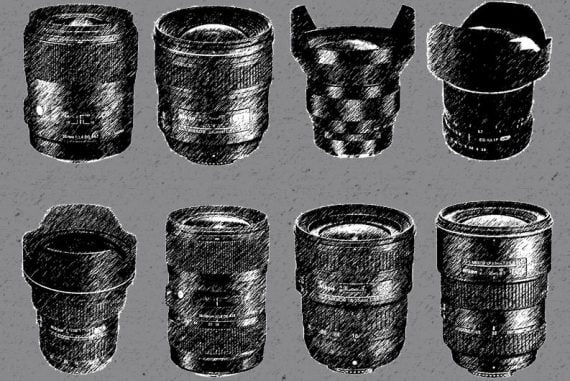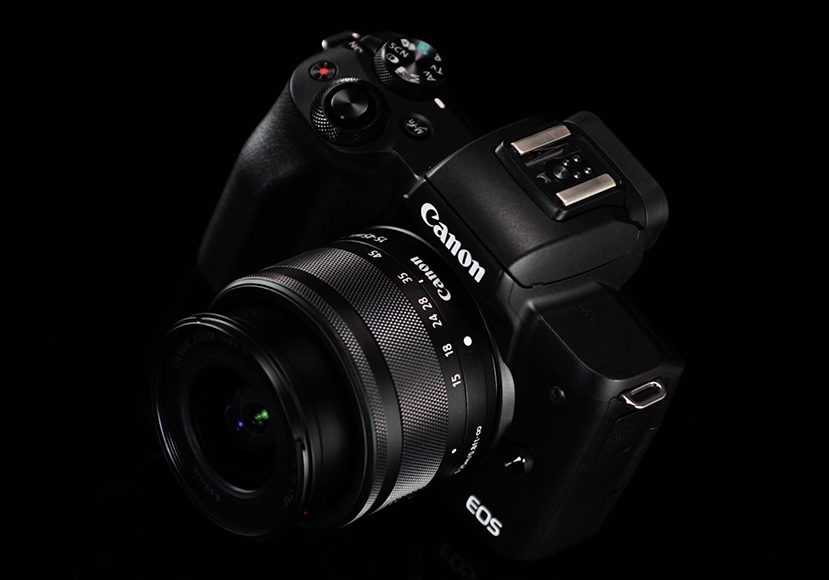
Best Lenses for the Canon M50 Mark II in 2023
Our top lens picks for the Canon M50 Mark II, from wide-angle and astrophotography to portrait primes, telephoto zooms, and the best macro prime.
In this guide, I’ll take you through the best lenses for Canon M50 Mark II.
The Mark II is an upgrade of one of Canon’s most popular cameras, the compact, lightweight, and affordable Canon M50.
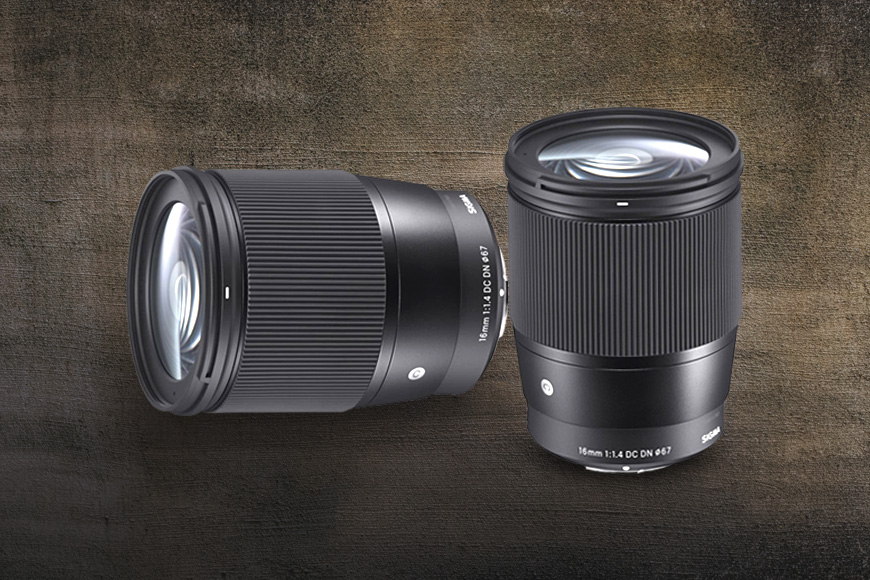
Fast, robust wide-angle lens with excellent image quality that pairs perfectly wiht the EOS M50 Mark II.
As a micro four-thirds camera, it needs particular lenses, compatible with the APS-C system.
Canon and other brands make a good range of lenses perfect for the Canon M50 Mark II.
However that range of 3rd party lenses for mirrorless cameras can be confusing, and that’s why I’m here to guide you.
Table of Contents
What is the Best Lens for the Canon M50 Mark II in 2023?
| Image | Product | Features | |
|---|---|---|---|
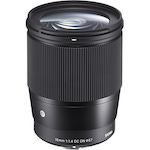 | Sigma 16mm f/1.4 BEST WIDE-ANGLE PRIME |
| Check AMAZONPrice → Check B&H Price → |
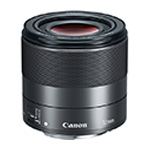 | Canon EF-M 32mm f/1.4 STMBEST NIFTY-FIFTY |
| Check AMAZONPrice → Check B&H Price → |
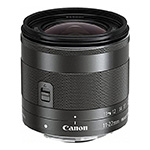 | Canon EF-M 11-22mm f/4-5.6 IS STMBEST WIDE-ANGLE ZOOM |
| Check AMAZONPrice → Check B&H Price → |
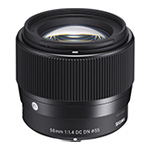 | Sigma 56mm F1.4 DC DNBEST PORTRAIT LENS |
| Check AMAZONPrice → Check B&H Price → |
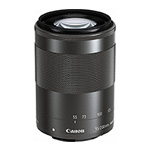 | Canon EF-M 55-200mm f/4.5-6.3 IS STMBEST TELEPHOTO ZOOM |
| Check AMAZONPrice → Check B&H Price → |
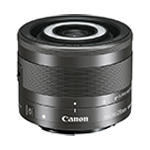 | Canon EF-M 28mm f/3.5 Macro IS STM BEST MACRO |
| Check AMAZONPrice → Check B&H Price → |
Sigma 16mm f/1.4 (Best Wide-Angle Prime)
- Excellent image quality
- Robust build
- Good autofocus
- Good form factor for the Canon M50 Mark II
- Not the best-looking lens
- Autofocus is a little noisy
- No image stabilization
This Sigma lens, built for the APS-C sensor, is the best wide-angle prime for the Canon M50 Mark II.
Its 16mm focal length is the full frame equivalent of 24mm.
As such, although it’s a true wide-angle lens and one that gives you dramatically stretched images, it’s not so wide that everything is pushed away at the edges and distorted.
With an aperture of f/1.4, this Simga 16mm is fast enough to throw your backgrounds out of focus if you need it, and also to allow you to shoot in low light conditions.
It also handles well. Although it’s relatively small, it has a good weight to it, and its only control, the manual focus ring, turns smoothly.
Its autofocus, although slightly noisy, is fast and accurate, and the image quality is exceptional.

Sigma 16mm f/1.4 Sample Image | Marc Bergreen
Normally with a lens this wide, you’d expect some softness around the edges, especially when shooting wide open.
Not with this lens. The images are tack-sharp and with excellent contrast from f/1.4 upwards.
Just be sure when you buy it that you’re choosing the Canon M Mount – the review below is for the Sony E-Mount, but you can still get a good idea of what this lens is capable of for your M50.
Canon EF-M 32mm f/1.4 STM (Best “Nifty-Fifty”)
- Lightweight
- Very little chromatic aberration
- Quite expensive
- Exceptional optical quality
- No image stabilization
- Autofocus is a little slow in video mode
- Doesn’t come with a lens hood
This Canon lens is our choice for best nifty-fifty, due to its neat and tidy build, and its versatility.
It’s a compact lens that fits well with the form factor of the M50 Mark II, and although it comes in at around 250 grams, thanks to its understated design, it still feels solid in use.
The Canon EF-M 32mm f/1.4 STM is a full-frame equivalent of 51mm. Anyone who knows anything about photography knows that this is a very versatile focal length.
It’s wide enough to give you the full picture, while also giving you room to focus on a specific subject.
And with an aperture of f/1.4 this lens, although it has little low-light flaring, still gives you great low-light performance overall and beautiful bokeh.
It’s also one of Canon’s sharpest EF-M lenses – pin-sharp from the centre of the frame to the edges, across the aperture range.
With these features, it’s definitely worth the cost. But, if it’s too steep for you, consider a less expensive alternative, such as the Sigma 30mm f/1.4.
Canon EF-M 11-22mm f/4-5.6 IS STM (Best Wide-Angle Zoom)
- Good price
- Image stabilization
- No low light flaring
- Good value for money
- High level of vignetting
The Canon EF-M 11-22mm f/4-5.6 IS STM is a handy wide-angle zoom lens to have in your kit bag.
It’s a compact lens that’s also collapsible. That means you can retract the lens fully when not in use to make it even more compact for travelling.
As you’d expect from a Canon lens, the build quality is great. No-nonsense design with a good feel to it.
It has a precise, responsive manual focus ring that is paired with the autofocus motor, and the autofocus is fast, silent, and accurate.
Similar to the Sigma 16mm f/1.4, the optical quality of this lens is exceptional, considering it’s a wide-angle zoom lens.
Images are pin-sharp in the centre at all apertures, and both zoomed in and zoomed out. There is a little softness at the edges, but really only a little, much less than would normally be expected from this kind of lens.
Sigma 56mm F1.4 DC DN (Best Portrait Lens)
- Solid feel
- Sharp images
- Good low-light performance
- No image stabilization
- Autofocus is a little slow and noisy
The Sigma 56mm F1.4 DC DN is our choice of portrait lens.
This focal length (full-frame equivalent of 85mm) is ideal both in terms of the distance it puts you from your subject and the subsequent lack of distortion that provides.
Plus, with its f/1.4 aperture, it’s perfect for separating subjects from their backgrounds – see the sample image below, shot wide open at f/1.4.

Sigma 56mm f/1.4 Sample Image | Marc Bergreen
As you’d expect, a lens of this speed is also good for shooting in low-light settings.
Its handling is good too. It feels solid and well-built.
Most of the lens casing is made of a rubberized focus ring which both provides grip and moves focus smoothly thanks to the lens’ responsive focus motor.
The Sigma’s image quality is great, too. Although there can be a little softness at the edges at f/1.4, if you’re shooting portraits, this won’t affect you. Softer edges can accentuate the impact of the portrait by helping draw the viewer’s attention to the centre of the frame.
As with all the other 3rd party lenses in this guide, be sure to select the Canon M-Mount when ordering.
Canon EF-M 55-200mm f/4.5-6.3 IS STM (Best Telephoto Zoom)
- Small, compact
- Very efficient image stabilization
- Lightweight and compact
- Good build
- Smooth operation
- Plastic
- No lens hood
- Images rather soft in the corners
- Extreme flaring in bright light
This telephoto zoom from Canon gives you quite a useful (though not large) zoom range for everyday use.
It’s lightweight, compact, and handles well, with both the zoom ring and manual focus rings operating extremely smoothly.
Videographers will be particularly happy with the lens’ high-quality, in-built image stabilization.
Image quality is good, but not great. It’s not a fast lens, so it’s not one you’ll want to be using in low light, and there is a little bit too much softness around the edges of the frame for my liking.
Still, despite its flaws, the 55-200mm is one of the only options available, so if you need long focal lengths, it’s the one to get.
Just consider this: if you already own the 18-150mm, or are interested in getting one, the all-purpose zoom lens might be money better spent if you don’t mind sacrificing 50mm at the tele end.
Canon EF-M 28mm f/3.5 Macro IS STM (Best Macro)
- Small and light
- Feature-packed
- Good image quality
- Focal length too wide for some macro, e.g. insects
- Autofocus exhibits focus-hunting in low light
The Canon EF-M 28mm f/3.5 Macro IS STM is an interesting package, an image-stabilized wide-angle macro lens.
Macro photography, while fun, can be difficult to pull off.
It’s hard to get sharp shots while shooting handheld, but using a tripod for macro photography can be a pain.
And, depending on what you’re shooting, it can be difficult to get enough light on your subject.
With this lens, Canon has solved both of these problems. It’s fully image-stabilized, and there’s also an in-built and adjustable ring light to illuminate whatever you’re shooting.
The focal length too, is a handy one for macro, as it will allow you to shoot a great variety of subjects, as long as you don’t mind getting up close.
The lens also has a super-macro mode which increases magnification from 1X to 1.2X.
In terms of optical quality, the lens gives you images which are sharp in the centre (not so much at the edges), and especially sharp when shooting macro-style. Which is exactly what you’d buy it for.
Honorable Mentions
Although these lenses didn’t make it into our top picks, they almost made the cut.
So let’s have a look at what they have to offer.
• Rokinon RK12M-M 12mm F/2.0 (Best Astro-Photography Lens for Canon EOS M50 Mark II)
This wide-angle lens, with its sharp images, great optical quality, low aperture, and great price, is an outstanding choice for astro-photography.
It’s completely manual focus, and while that might be intimidating for some shooters, it’s perfect for shooting at night.
The calibration of this lens is fantastic, and with the manual focus ring set to infinity, you can be certain that the stars are going to be sharp.
• Canon EF-M 22mm f/2 STM (Best Budget Lens for Canon EOS M50 Mark II)
This is a super small and light lens at a great price point.
It’s the full-frame equivalent of 35mm, so it’s a great everyday lens for multiple uses; street photography, landscapes and cityscapes.
Oddly, it doesn’t give you the option to switch to manual focus on the lens, so that has to be done in-camera, which is a bit fiddly.
But, the autofocus is extremely fast and accurate, so most of the time you’ll be fine with that.
The lens also creates very sharp, well-contrasted images. And with an aperture of f/2 has low-light performance which elevates the capabilities of the M50 Mark II.
• Venus Laowa 9mm f/2.8 Zero-D (Best Super-Wide Lens for Canon EOS M50 Mark II)
Many lenses of this focal length are fisheyes, but this is a vector linear lens, which means that, although it’s extremely wide-angle, all the lines are straight.
Like the Rokinon above, it’s another super-wide, full manual focus lens, which is great both as a walkaround super-wide lens and for night photography.
You also set the aperture using a nice, clicky ring on the lens. So it has a nice, overall manual feel to it.
It’s small, compact and light, but as it’s made of metal, also feels solidly built.
• Canon EF-M 18-150mm f/3.5-6.3 (Best Street Photography Zoom Lens for Canon EOS M50 Mark II)
This replacement for the Canon EF-M 18-55mm lens has a new and comprehensive zoom range, plus image stabilization.
This Image stabilization comes in really handy for handheld street photography.
It has great autofocus, but can also be switched to manual focus. The manual focus ring is coupled with an electronic autofocus motor, which is silent and quick in use.
Its build quality is not the best though, given its price, and image quality is a little lacking around the edges of the frame. Something it seems Canon need to work on for their micro four-thirds zoom lenses.
Which Lenses are Compatible with the Canon M50 Mark II?
The Canon M50 Mark II is a mirrorless camera that uses the Canon EF-M lens mount.
This means that it’s compatible with Canon’s EF-M lenses, which are specifically designed for the Canon M series compact cameras.
Here are some Canon EF-M lenses that are compatible with the Canon M50 Mark II:
- Canon EF-M 18-150mm f/3.5-6.3 IS STM
- Canon EF-M 55-200mm f/4.5-6.3 IS STM
- Canon EF-M 22mm f/2 STM
- Canon EF-M 32mm f/1.4 STM
- Canon EF-M 11-22mm f/4-5.6 IS STM
- Canon EF-M 28mm f/3.5 Macro IS STM
- Canon EF-M 15-45mm f/3.5-6.3 IS STM
In addition, the Canon M50 Mark II can also use Canon’s full-frame EF and EF-S lenses with the use of an adapter, such as the Canon Mount Adapter EF-EOS M discussed below.
However, the crop factor of approximately 1.6x of the APS-C sensor of the M50 Mark II will affect the effective focal length of the lens.
This means that when using a lens designed for a full-frame camera, the effective focal length will be approximately 1.6 times longer on the M50 Mark II.
For example, a 50mm lens on a full-frame camera would have an effective focal length of 80mm on the M50 Mark II.
Mount Adaptors for the Canon EOS M50 Mark II
The Canon M50 Mark II body only takes EF-M lenses, which are specifically made for it.
So, if you shoot with an M50, you’re limited to EF-M lenses, and other third-party lenses for the micro four-thirds system mount.
If you want to access a greater variety of lenses, and often higher-quality lenses, you’ll need an adaptor to make that possible.
Canon EF-EOS M Adaptor
This is the obvious choice of lens adaptor for the Canon M50 Mark II, Canon’s bespoke EF-EOS M adaptor.
It’s small and lightweight, so it won’t take up much room in your bag at all and is compatible with the whole range of Canon EF and EF-S lenses.
That’s about 65 lenses in total, ranging from 8mm to 800mm in focal length.
It also has a removable tripod mount, so you’ll be ok using the heavier lenses too.
Vello Canon EF-EOS M Adapter
This Vello product does exactly the same as the Canon lens adaptor above but for around a quarter of the price.
The customer reviews are good too. So if you’re on a budget, this is an excellent option.
Best Lenses for Canon M50 Mark II: FAQs
What is the best lens for portrait photography Canon M50 Mark II?
My choice would be the Sigma 56mm F1.4 DC DN. With an aperture of f/1.4, it’s a fast lens that’s great for throwing backgrounds out of focus.
It’s the perfect focal length for portrait photography too, and the images are extremely sharp, especially in the centre of the frame where you need it most.
Can I use EF lenses on Canon M50 Mark II?
You can use the whole range of Canon EF lenses with the Canon M50 Mark II if you attach a lens adaptor to the body.
Canon makes its own adaptor, the EF-EOS M Adaptor, and there are also third-party options such as the Vello Canon EF-EOS M Adaptor.
Is Canon M50 Mark II good for low light photography?
It’s not well-known for being an excellent low-light photography camera, although it doesn’t do badly, but you need to pair it with the fastest lens possible to give and (and you) the best chance.
Its autofocus works extremely well in low light, but images can get quite noisy around the edges when using high ISO.
What’s the best street photography lens for the Canon M50 Mark II?
I’d choose between the Sigma 16mm f/1.4 and the Canon EF-M 32mm f/1.4 STM.
Both are fast lenses, so would free you up to shoot street scenes in both day and night.
The Sigma might give you a bit more versatility, as it offers a wider perspective, but, as an all-around focal length, you also really can’t go wrong with a nifty-fifty.

Fast, robust lens with excellent image quality that pairs perfectly wiht the EOS M50 Mark II.





